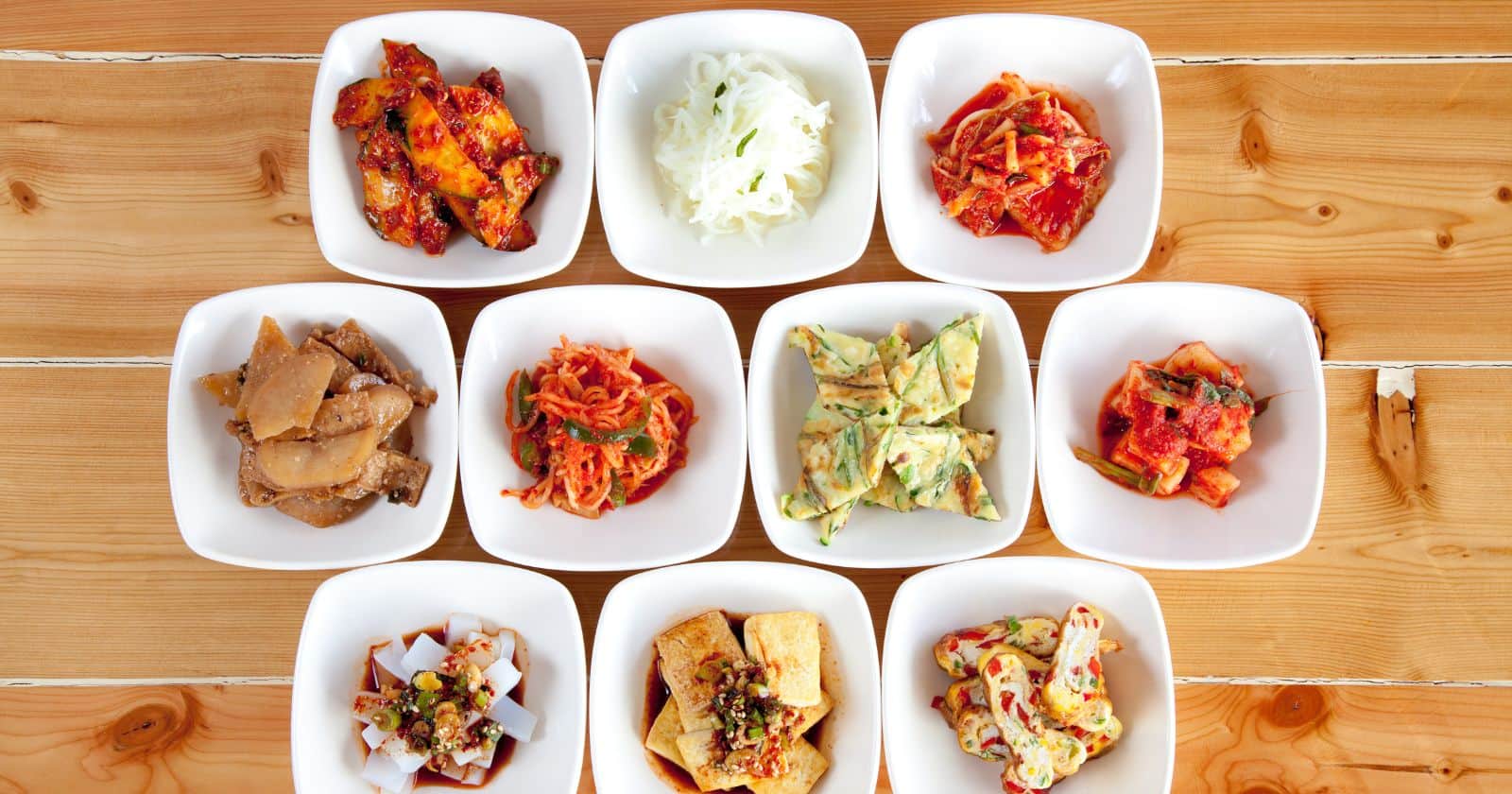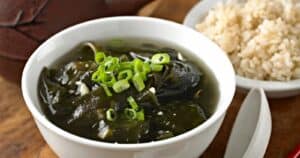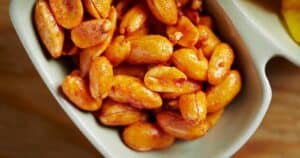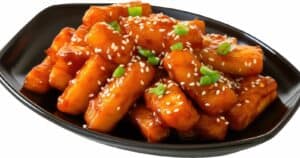Are you a fan of the mouthwatering flavors of Korean BBQ? While it may be hard to resist the sizzling meats and tantalizing aromas, if you’re hoping to lose weight, you might wonder if indulging in this delicious cuisine is a smart choice. Well, worry not! In this blog post, we’ll explore the truth about Korean BBQ and weight loss, providing you with all the information you need to make mindful choices and still enjoy this delectable dining experience.
The Impact of Korean BBQ on Weight Loss
Korean BBQ is typically not considered optimal for weight loss or sustaining normal weight. It is often eaten in an all-you-can-eat style, which can lead to overeating and consuming excessive calories. Additionally, Korean BBQ often includes higher fat content meats such as pork belly and short ribs. Consuming these meats without portion control, especially at all-you-can-eat BBQ spots, can easily lead to weight gain.
However, there are healthier options available when it comes to Korean BBQ. Opting for leaner cuts of meat such as boneless skinless chicken thigh, shrimp, and seafood can be a better choice. These options are lower in calories and higher in protein compared to higher fat content meats.
Moderation is key when it comes to enjoying Korean BBQ while managing weight. Being mindful of portion sizes and avoiding excessive consumption can help control calorie intake. It’s also important to prioritize nutritious banchan options that are often served with Korean BBQ. Choosing steamed or grilled vegetables can add nutritional value to the meal without adding excessive calories.
One potential drawback of the Korean diet, including Korean BBQ, is its high sodium content. It’s important to balance sodium intake by drinking plenty of water and being mindful of other meals throughout the day.
Calorie, Sodium, and Fat Content in Korean BBQ
Korean BBQ can be a delicious and satisfying meal, but it’s important to be aware of its calorie, sodium, and fat content, especially if you’re trying to lose weight. Here are some key facts to consider:
Calorie Content:
- A typical serving of Korean BBQ can range from 400 to 800 calories.
- The actual calorie count can vary depending on the type of meat, preparation method, and serving size.
- Fattier cuts of meat tend to have higher calorie counts.
Sodium Content:
- Korean BBQ can be high in sodium, with a typical serving containing 1500 to 2300 mg of sodium.
- Excessive sodium intake can contribute to high blood pressure and other health issues.
- It’s important to be mindful of sodium levels, especially if you have dietary restrictions or health concerns.
Fat Content:
- Korean BBQ can also be high in fat, with a typical serving containing 18 to 40 grams of fat.
- Consuming too much fat can lead to weight gain and other health problems.
- Opting for leaner cuts of meat can help reduce the fat content of your Korean BBQ meal.
Tips for Healthier Korean BBQ:
- Choose leaner cuts of meat like chicken breast or pork loin instead of fattier options like beef short ribs or pork belly.
- Be mindful of portion sizes and avoid overeating.
- Consider grilling or broiling the meat instead of pan-frying to reduce the amount of fat used in the cooking process.
- Limit your intake of Korean BBQ sauce, as it can add extra calories, sugar, and sodium to your meal.
Healthy Elements of Korean Cuisine
Korean cuisine is known for its healthy elements that can support weight loss and contribute to overall well-being. Here are some key components of Korean cuisine that can be beneficial for those looking to shed some weight:
Abundance of Vegetables:
Korean cuisine incorporates a wide variety of vegetables, ranging from cabbages to bean sprouts and spinach to Korean radishes. These vegetables are rich in vitamins, minerals, and fiber, which can help promote satiety and aid in weight loss.
Fermented Foods:
Fermented foods like kimchi play a prominent role in Korean cuisine. Not only do fermented foods add flavor to dishes, but they also offer numerous health benefits. Fermented foods are packed with probiotics, which support a healthy gut microbiome. A balanced gut microbiome can aid in digestion, boost the immune system, and improve overall health.
Emphasis on Seafood:
Korean cuisine emphasizes the consumption of fish and seafood due to the country’s coastal location. Seafood is a good source of lean protein, omega-3 fatty acids, and various minerals. These nutrients can help promote satiety, support muscle growth, and contribute to a healthy weight.
Rice as a Staple:
Rice is a staple in Korean cuisine and is often served alongside vegetables, meat, or seafood. Compared to refined grains, such as white bread or pasta, rice provides a steady release of energy and keeps you fuller for longer. Opting for whole grains, such as brown rice or wild rice, can further enhance the nutritional value of the dish.
Nutrient-rich Soups:
Korean cuisine includes a variety of broth-based soups, which are packed with nutrients and can aid in weight loss. Soups are generally low in calories but high in volume, making them a filling and satisfying option. Moreover, they provide an opportunity to incorporate more vegetables and lean proteins into your diet.
Healthy Cooking Methods:
Korean cooking methods, such as grilling, fermenting, and stewing, are generally healthier than methods that involve deep-frying or the extensive use of added fats. These cooking techniques help retain the natural flavors and nutrients of the ingredients while keeping the calorie content in check.
Tips for Making Healthier Choices at Korean BBQ
Korean BBQ is known for its delicious flavors and unique dining experience. However, it can also be quite indulgent and high in calories. If you’re looking to make healthier choices while enjoying Korean BBQ, here are some tips to keep in mind:
Choose Lean Meats: Opt for leaner cuts of meat like sirloin, skirt, and beef tongue. These options have the lowest amount of fat and are healthier choices. You can still enjoy the flavors of Korean BBQ without excessive calories and saturated fats.
Moderate Your Portions: Be mindful of portion sizes and avoid overeating. Stick to smaller portions of meat and focus on enjoying the flavors and experience rather than consuming large quantities. This will help you control your calorie intake and prevent overindulgence.
Choose Nutritious Banchan: Banchan, the side dishes served with Korean BBQ, can vary in terms of nutritional content. Look for healthier options like steamed or grilled vegetables, kimchi, bean sprouts, or seaweed salad. These choices are lower in calories and provide essential nutrients.
Control the Sauces: Korean BBQ often comes with various dipping sauces. Be cautious with high-calorie sauces like ssamjang or sesame oil-based sauces. Use them sparingly or opt for lighter options like soy sauce or vinegar. This will help you reduce your calorie intake and avoid excess fat.
Avoid Fried Foods: Some Korean BBQ restaurants offer fried foods like tempura or fried chicken. These dishes can be high in calories and unhealthy due to the frying process. Instead, choose grilled or steamed dishes, which are healthier alternatives.
Be Mindful of Sodium Intake: Many Korean BBQ dishes contain a high amount of sodium, which can contribute to high blood pressure and other health issues. Be mindful of your sodium intake and balance it with other meals throughout the day. This will help you maintain a healthier overall diet.
Grill at Home: Consider preparing Korean BBQ at home, where you have more control over the ingredients and cooking methods. This allows you to choose leaner cuts of meat, control portion sizes, and use healthier cooking techniques. It can also be a fun and interactive way to enjoy Korean BBQ with friends and family.
Opting for Lean Cuts of Meat at Korean BBQ
If you’re looking to enjoy Korean BBQ while watching your weight, choosing lean cuts of meat is a smart strategy. Here are some tips to help you make healthier choices at the grill:
Sirloin: Sirloin is a lean cut of meat that is a great option for Korean BBQ. It is lower in fat compared to other cuts, making it a healthier choice for those looking to cut down on calories.
Skirt: Another lean cut of meat to consider is skirt. Skirt steak is known for its rich flavor and tenderness, making it a popular choice at Korean BBQ restaurants. It is also relatively low in fat, making it a good choice for those watching their weight.
Beef Tongue: Surprisingly, beef tongue is also a lean and healthy choice for Korean BBQ. It is a flavorful cut that is lower in fat compared to some other options, making it a good choice for those looking for a healthier alternative.
Marinated Beef Short Rib: Marinated beef short ribs are a favorite at Korean BBQ, but they can be higher in fat. If you can’t resist the juicy and flavorful short ribs, opt for smaller portions or choose leaner cuts of meat instead.
Boneless Skinless Chicken Thigh: If you prefer chicken over beef, boneless skinless chicken thigh is a leaner protein option for Korean BBQ. It is lower in fat compared to other chicken cuts, making it a healthier choice.
Shrimp and Seafood: If you’re looking for even leaner protein options, consider shrimp and seafood. They are low in fat and calories, making them excellent choices for a healthy Korean BBQ meal.
Pork Belly and Short Ribs: Pork belly and short ribs are delicious options at Korean BBQ, but they are higher in fat and calories. To enjoy these indulgent meats without derailing your weight loss efforts, consume them in moderation and control portion sizes.
Balancing Your Meal with Nutritious Side Dishes at Korean BBQ
Korean BBQ is a flavorful and popular dining experience, but it’s important to make healthy choices to support weight loss goals. By incorporating nutritious side dishes into your meal, you can enjoy the delicious flavors of Korean BBQ while maintaining a balanced diet. Here’s how you can achieve this:
Choose Lean Meats: Opt for lean cuts of meat such as sirloin, skirt, and beef tongue. These options have a lower fat content compared to fattier cuts of meat. By selecting lean meats, you can reduce calorie intake and make healthier choices.
Moderate Your Portions: Be mindful of portion sizes and avoid overeating. Aim for smaller portions of meat and focus on savoring the flavors and enjoying the overall experience of Korean BBQ, rather than consuming large quantities. This mindful approach can help control calorie intake and support weight loss.
Choose Nutritious Banchan: Banchan, the side dishes served with Korean BBQ, provide an opportunity to incorporate healthier options into your meal. Look for dishes like steamed or grilled vegetables, kimchi, bean sprouts, or seaweed salad. These options are lower in calories and offer essential nutrients that can contribute to a balanced meal.
Control the Sauces: Korean BBQ often comes with various dipping sauces. Be cautious with high-calorie sauces such as ssamjang or sesame oil-based sauces. Use them sparingly or opt for lighter options like soy sauce or vinegar. This will help reduce unnecessary calorie intake while still enhancing the flavors of the meal.
Avoid Fried Foods: Fried foods like tempura or fried chicken can be high in calories and unhealthy. It’s best to avoid these options and instead select grilled or steamed dishes. By making this choice, you can reduce calorie intake and promote weight loss.
Be Mindful of Sodium Intake: Many Korean BBQ dishes contain a high amount of sodium, which can contribute to health issues like high blood pressure. Be aware of your sodium intake and balance it with other meals throughout the day. This can help maintain a healthy sodium level and support overall well-being.
Choose Healthy Beverages: Korean BBQ is often accompanied by alcoholic beverages or sugary drinks. Opt for healthier choices like water, tea, or low-sugar drinks to balance your meal. These options provide hydration without adding unnecessary calories.
Limiting High-Calorie Condiments and Sauces at Korean BBQ
Korean BBQ is a delicious and popular cuisine, but it can also be high in calories, particularly due to the condiments and sauces served with it. Here are some tips to help you limit high-calorie condiments and sauces at Korean BBQ:
Be mindful of the calorie and sugar content: One of the most common condiments served with Korean BBQ is Korean BBQ sauce, which can be high in calories and sugar. A 17-gram serving of Korean BBQ sauce contains 30 calories and 5 grams of sugar. It’s important to pay attention to the nutrition labels and be aware of how much you are using.
Opt for lighter options: Instead of loading up on high-calorie condiments and sauces, you can choose lighter options like soy sauce or vinegar. These options can still add flavor to your meal without adding excessive calories.
Make your own healthier sauces at home: Another way to limit high-calorie condiments and sauces is by making your own at home. You can use ingredients like low-sugar sweeteners, vinegar, and spices to create healthier versions of your favorite Korean BBQ sauces. This way, you have control over the ingredients and can reduce the calorie content.
Remember, it’s not just about limiting the condiments and sauces, but also about making smart choices when it comes to meat and side dishes. Choosing leaner cuts of meat and opting for nutritious banchan can help balance out the meal and reduce the need for high-calorie condiments and sauces.





